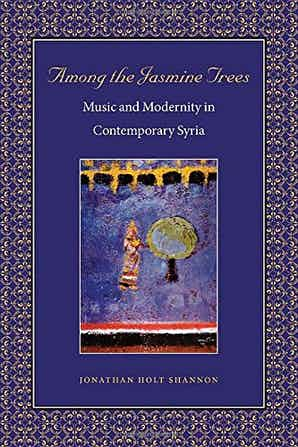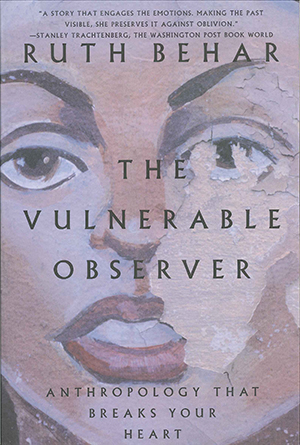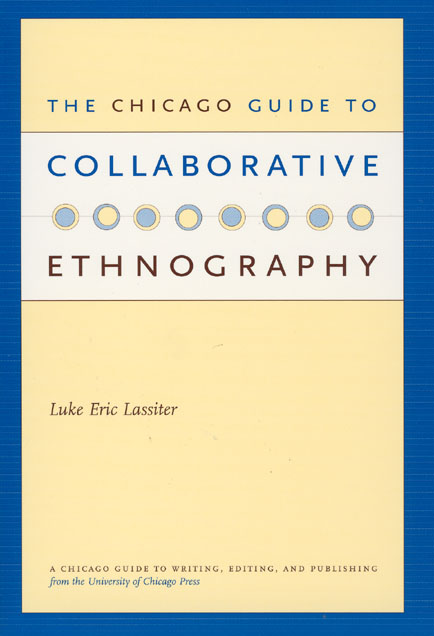Predictions, revolutions, displacements
Ten years ago this Fall, I sat with a colleague at a restaurant during a break from the annual meeting of the American Anthropological Association. Both of us specialists on Syrian culture, we were at once surprised and not at all surprised that the Arab uprisings would ignite so explosively in Syria. It was, after all, a country ruled by an oppressive regime, but one that had exacted loyalty in return for relative stability. Having witnessed the downfall of other autocratic regimes, first in Tunisia, then in Egypt and Libya, my colleague asked me how long I thought the Syrian leader, Bashar al-Assad, could hold on to power. I stated with naïve confidence that he would not last more than another six months (she, more experienced, was less sanguine about his imminent departure). Here we are a decade later, and, while the old slogans of “The Revolution Continues / al-thawra musatmirra” still reverberate in some corners of the country and abroad, the Assad regime remains in place, propped up by Russia, Iran, and their regional proxies. The result of this has been what the world witnessed in great detail: the devolution of a popular uprising into a de facto civil war, the destruction of significant portions of Syria’s urban infrastructure, a near economic collapse, and—more importantly—the death of over half a million Syrians and the displacement of about 12 million (over half the pre-revolution population) either internally or externally. Today, some 7 million Syrian reside outside Syria: over 2 million in Lebanon, Jordan, Iraq, and Egypt, nearly 4 million in Turkey, and over a million in Europe. The loss of human life and the forced or voluntary migration of so many has had devastating effects on Syria, and on the Syrian musical cultures that I spent the previous 20 years documenting and analyzing.
“The mutual displacement of their lives and my research has led me to contemplate the nature of field research in turbulent times, and the ‘ethnographic entanglements’ that bind fieldworkers to the subjects of their research, in often contradictory ways.”The consequences of the uprisings for those who research music and popular culture in Syria have been profound. My last visit to Syria was in late 2008, and any plans to return were made impractical by the ongoing conflict and travel restrictions, as well as by the displacement of so many of my former interlocutors and teachers—musicians, music-lovers, artists of all stripes—outside of Syria. The war and displacements of people also displaced research. I decided to follow the music and the musicians to where they would lead me: first to Turkey and Egypt, then, following the many musicians who fled for Europe, to Greece, Italy, Germany, France, Holland, Denmark, Sweden, and beyond. While I was eager to understand how Syrian musicians used music to manage their often-fraught insertion into new homelands, my long relationship with Syria and close ties to many Syrian musicians made conducting research in contexts of displacement challenging. The mutual displacement of their lives and my research has led me to contemplate the nature of field research in turbulent times, and the “ethnographic entanglements” that bind fieldworkers to the subjects of their research, in often contradictory ways. In what follows, I explore the nuances of displaced ethnography and the ethics of research practice that such ethnographic entanglements enjoin.
Displacement, multi-sited ethnography, multi-sited ethics
At the same time, my work has raised for me several methodological and ethical questions. How does one study a musical culture in motion (even when many of the participants were not musicians in their homeland)? How can older methods of ethnographic research be adapted to these new conditions? A particular challenge for me has been how to navigate large generational gaps to conduct research among the children and even grandchildren of the artists I knew back in Syria, and who often performed music I had little understanding of or even appreciation for—genres such as Techno, House, EDM, and various underground genres, as opposed to traditional ṭarab music.1 Middletown, CT: Wesleyan University Press, 2006More Info → Much has been written on multi-sited research in the wake of George Marcus’s important essay2“Multi-sited Ethnography: Notes and Queries,” in Multi-sited Ethnography: Theory, Praxis, and Locality in Contemporary Research, ed. Mark-Anthony Falzon (Routledge, 2009), 181–196. on the nature of ethnographic research conducted in multiple sites as well as using multiple modes of ethnographic knowledge. As my project moved with Syrian musicians first to Turkey and then across Europe, I confronted the challenge of how to conduct a multi-sited “return study” when the sites of dislocation are multiple and complex, and return to the original research location is not feasible. While Aleppo and Damascus are now beginning to host musical cultures again, the people with whom I crafted relationships now some 25 years ago are largely absent from these places, and those who remain are often mired in precarious economic and political situations.
Middletown, CT: Wesleyan University Press, 2006More Info → Much has been written on multi-sited research in the wake of George Marcus’s important essay2“Multi-sited Ethnography: Notes and Queries,” in Multi-sited Ethnography: Theory, Praxis, and Locality in Contemporary Research, ed. Mark-Anthony Falzon (Routledge, 2009), 181–196. on the nature of ethnographic research conducted in multiple sites as well as using multiple modes of ethnographic knowledge. As my project moved with Syrian musicians first to Turkey and then across Europe, I confronted the challenge of how to conduct a multi-sited “return study” when the sites of dislocation are multiple and complex, and return to the original research location is not feasible. While Aleppo and Damascus are now beginning to host musical cultures again, the people with whom I crafted relationships now some 25 years ago are largely absent from these places, and those who remain are often mired in precarious economic and political situations.
I find the ethical questions more troubling. How does one conduct “research” with individuals who, over the span of decades, one has created close ties of intimacy, who in many cases are actual friends, and not just “field friends”? More importantly, not only how but should one conduct ethnography on people severely traumatized by war and what for most of us would be nothing short of inconceivable loss? I continue to ask myself, who am I to show up in these new homelands and turn troubled emotional and musical landscapes into a research project? The ethical imperative to respect their silences, to bear witness to their suffering,3 Boston: Beacon Press, 1996More Info → and to engage with them as humans and not (only) as research subjects, has made the project of ethnography more troubled, and troubling. Sitting with Syrian interlocutors and friends in Istanbul, Berlin, Paris, and Stockholm and hearing their stories, sharing their silences, trying to understand their pain but also their hope, their loss, and their creative energies, has brought me to face the intricate ethnographic entanglements of my long relationship with Syria, and with Syrian musicians.
Boston: Beacon Press, 1996More Info → and to engage with them as humans and not (only) as research subjects, has made the project of ethnography more troubled, and troubling. Sitting with Syrian interlocutors and friends in Istanbul, Berlin, Paris, and Stockholm and hearing their stories, sharing their silences, trying to understand their pain but also their hope, their loss, and their creative energies, has brought me to face the intricate ethnographic entanglements of my long relationship with Syria, and with Syrian musicians.
Pandemic problems, prospects, and multi-sited ethics
Enter the Covid-19 pandemic. The methodological and ethical challenges of the post-uprising ethnographic situation have been compounded by travel restrictions, concerns over public and mental health (of my interlocutors, of myself), and the silencing of many musical practices that had existed prior to March 2020. Those Syrians who had begun to eke out livings through musical performance in cities like Istanbul and Berlin (on the street, in cafes and restaurants, and even in concert halls) were mainly sidelined with the closure of these spaces. Some struggled to join the world of remote instruction and performance given inadequate internet connections. Many feared catching the virus, while others shared, and in some cases composed, coronavirus satirical songs.4A recent example from Idlib on YouTube is Ahmed Rahhal Media, “Aqwā anshūdah li-fāīrūs kūrūnā fī idlib as-sūriyya,” March 16, 2020. For example, Abu Karim, an older friend from Aleppo who had been forced to relocate to Istanbul, experienced difficulty managing online connections and, in the end, retreated into relative silence aside from occasional WhatsApp texts. The same was true for many of my former interlocutors, now spread around the world.
At the same time, through social media and pre-pandemic visits, I had begun to cultivate relationships with (usually) younger Syrian artists in places like Istanbul, Berlin, Amsterdam, and Stockholm. Some were the children or friends of musicians I had worked with in Syria back in the 1990s. For them, the technological dimensions of interaction posed little problems, and in fact many were quite agile in their embracing of online performance opportunities and other forms of digital engagement in their new homelands, and increasingly globally—including back in Syria. But navigating their new worlds in the presence of a US anthropologist with long ties to their disturbed homeland raised many questions for them as for me. The double whammy of dislocation and pandemic raised the question not only of how to do the research, but why?
Ethnographic entanglements
“Ethnographic entanglement implies relationships, and interpersonal relationships are fraught with multiple and sometimes competing motivations of the scholar and the subject of research.”The notion of “entanglement” seems to be apt in this regard. Marcus’s concept of multi-sited ethnography promotes the analysis of interconnectedness across time and place. Multi-sited research would also address an ethnographic problem from multiple perspectives. Drawing on Marcus’s approach, and evoking the notion of entanglement from quantum physics, Murray-Rust et al. propose what they call an “entangled ethnography” in which “…constellations of people, artefacts, algorithms and data come together to collectively make sense of the relations between people and objects.”5Dave Murray-Rust et al., “Entangled Ethnography: Towards a Collective Future Understanding,” HTTF 2019: Proceedings of the Halfway to the Future Symposium 2019, November 2019, 1–10. While one might see this as an extension of Actor-Network Theory, especially in its evocation of nonhuman actants, I understand ethnographic entanglement to be as much an ethical as a methodological concept.6Kaushik Sunder Rajan makes similar points in Multisituated: Ethnography as Diasporic Praxis (Durham, NC: Duke University Press, 2021). Ethnographic entanglement implies relationships, and interpersonal relationships are fraught with multiple and sometimes competing motivations of the scholar and the subject of research. Nolas and Varvantakis suggest that “[entanglement] is a knotting and twisting of different modes of knowledge generation.” In fact, these new modes and networks for producing knowledge should encourage (or at least push) the ethnographer toward collaborative ethnography,7 Chicago: The University of Chicago Press, 2005More Info → with the effect of decentering ethnographic authority, and, in the case of expressive cultural forms like popular music, creating opportunities for cultural coproduction. It at once addresses older arguments about ethnographic authority and allows for a more “vulnerable” as well as empowering forms of witnessing to violence and creativity in the aftermath of the dual disasters of displacement and pandemic. In a way, multi-sited entangled ethnography is also a multi-sited ethical research practice—requiring attention to networks and connections, but also to how these imply new obligations and commitments.
Chicago: The University of Chicago Press, 2005More Info → with the effect of decentering ethnographic authority, and, in the case of expressive cultural forms like popular music, creating opportunities for cultural coproduction. It at once addresses older arguments about ethnographic authority and allows for a more “vulnerable” as well as empowering forms of witnessing to violence and creativity in the aftermath of the dual disasters of displacement and pandemic. In a way, multi-sited entangled ethnography is also a multi-sited ethical research practice—requiring attention to networks and connections, but also to how these imply new obligations and commitments.
My new ethnographic entanglements with old friends, their children, and new field associates have created the conditions for a more decentered ethnographic practice, though of course it cannot entirely be decentered so long as I have the privilege of travel, a secure position in the academic hierarchy, funds for research, and a stable home. Yet the move toward a collaborative model of research and coproduction has opened the possibilities for these entanglements to produce new forms of knowledge, and for me to embrace a new research model that addresses ethical concerns about a potentially “parasitic” ethnographic project. One example of this is a cocurated Arabic language podcast on Syrian underground musicians in Berlin; I have been working with a Syrian artist with extensive knowledge of the Berlin scene by providing financial and some technical support, as well as generating questions for the conversations, and ultimately participating in some of the interviews. When it airs, the podcast will highlight my collaborator’s work and the creativity of the Syrians in the Berlin underground; I will remain almost entirely in the background. Another is a coauthored text in progress that I am creating with Syrians in Damascus, Istanbul, Alexandria, Berlin, Amsterdam, and Stockholm. Sounding Home: Syrian Migrant Musicians from Syria to Scandinavia will feature Syrians narrating their experiences of war and displacement, and how they use music to fashion new lives in exile, or at “home” in Syria.
These entanglements across intergenerational networks of musicians create the conditions for new, collaborative research driven not only by the research imperatives of the (mainly Western) academy, but by the subjects themselves. Syrians do not need yet another anthropologist to tell their stories, no matter the long entanglements with them or their families; they have been telling these stories themselves already. These new (for me) digital, online, and collaborative fieldwork opportunities present opportunities for new entanglements in a new global diaspora. They at once draw on previous entanglements—sometimes messy, always multilayered, and complex—and open new avenues. Scholars of the Middle East have grappled for decades with the ethics and politics of research in that region. As we ponder new critical interventions into the cultural politics of everyday life, the challenges posed by displacement and the pandemic offer us new opportunities to question once again not only how to do our work, but with whom, and why.
Banner photo: Stijn Nieuwendijk/Flickr.













